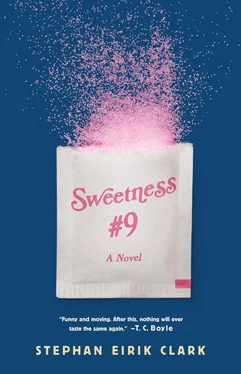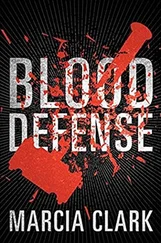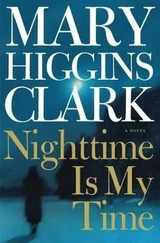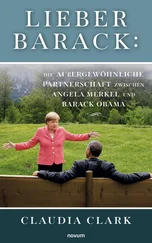“Excuse me, mein Führer?” Ernst had been looking down in his lap as if puzzling over a knot, but here he couldn’t help but lift his eyes and notice Hitler’s smile.
“I said have you ever considered suicide?”
Ernst Eberhardt curled his toes inside his slippers and brought his snifter of brandy up to his nose. Such subtle woody notes of flavor. Would this be the last taste he experienced? He swallowed, but the drink went down wrong — had he already been poisoned? — and so for a moment he coughed violently and sat there beating on his chest.
“Excuse me, mein Führer. Suicide, you say? Well, yes, I have considered it. But really”—he rose from the divan, conscious of the weight in his knees—“who hasn’t? It is human nature, is it not?” He crossed to the bar trolley and set his glass down, convinced now that he’d at least live to experience another taste. Taste, after all, could not be confined to what you had on your plate or held in a glass, for what was frozen in the grim pucker of every death mask but the bitterness of our own mortality?
Ernst checked his watch — its face blurred — and nodded as if he could read it. “May I be excused?” he said. “I must prepare you a satisfying breakfast in but a few hours.”
Hitler nodded lazily, and then Ernst turned and walked up the stairs. The following morning, he decided the argument that had long since replaced his evening prayers. If he should be so lucky as to live, he would do so in America. Ernst had always vilified the Americans’ mouths, considering their palates crass and vulgar, given over to peanut butter and Coca-Cola, to say nothing of the country’s unrivaled obsession with vanilla. But it’d be better than a life amongst the Soviets. Stalin, it was rumored, was a non-taster, a man whose tongue was equipped with as few as eleven taste buds per square centimeter — or one hundred times fewer than the most well-endowed tongue. Ernst couldn’t imagine living beneath a man who was unable to register the subtle differences between sweet and sour. He’d eat a million hot dogs and withstand as many false smiles before that.
After dressing, Ernst went above-ground, where he found a heap of charred flesh steaming at the entrance to the bunker. Two soft-bellied soldiers stood over it, one with his uniform half-buttoned, each with hair the color of original sin. They spat on the carcass, causing it to hiss. Ernst looked up and asked a question with only the weight in his eyes.
“Blondi,” the first soldier said, scratching at his chest.
“A controlled experiment,” said the other. “Cyanide.”
Ernst moved away from them, glancing up at the sky. Enemy planes could no longer be seen or heard at any hour of the day, but there was little relief to be found in this: it meant only that their troops were close enough to advance beneath the power of their own artillery. He looked to the eastern horizon, hearing the muffled thud of the Soviet approach. How far now? Twenty kilometers? Ten?
He entered the orangery and pushed through the trees to the back of the room, where he’d cleared some space for his seedlings. As he leaned in over them, he found the first tiny shoots of lettuce and cabbage wilted. His pots of herbs and cherished potato starts were no better. He looked up, knowing what he’d find even before he saw it: several panes of broken glass letting in the cold. He cursed softly, wondering if the enemy’s bombs were to blame or if the guards had been making a sport of target practice again. Whatever the answer, he no longer felt as he had in Wiesbaden. This was war, all right. No place for a man, let alone a potato.
Back in the bunker, he helped prepare the night’s bleak meal: bruised root vegetables, carrots so pale as to be almost translucent, and meat (for Hitler did fancy himself the occasional slab of ham, despite the rumors of his vegetarianism) to which Ernst added an ample dose of red dye. While this coloring made the main course far more presentable, his best work was reserved for dessert, a yellow gelatinous substance identified on the meal’s tiny menu card as “vanilla custard.” The quotation marks were appropriate, Ernst thought, because the custard’s tell-tale consistency relied almost exclusively on the ground hooves of a dead horse (supplies were that scarce), while its flavor had been made tolerable only after he’d reached for the bottle marked Geschmack Drei.
Normally, Ernst stood ready in the kitchen, there to flavor an additional course if the Führer’s appetite was good or face the inevitable punishment if ever he thought to poison a meal. This evening, however, Ernst appeared in the dining room as the Führer was still stuffing his mouth with the reddened meat.
“I am sorry to trouble you,” he said. “But I wonder if I might be excused?”
Hitler looked up from his meal with one cheek puffed out by a mouthful of meat.
“I thought I’d take a quick constitutional, is all. To return the color to my face.”
The Führer wiped the savory juices from his chin, perhaps thinking the subterfuge of this request a final effort on Ernst’s part to be polite. No one would have faulted him if he had been more direct. After all, just the previous evening Hitler had told his secretaries to leave, warning them of what the Soviets would do when they arrived.
Hitler gave a wave of his hand. “Yes,” he said. “That would be fine. Thank you, Ernst. You’ve been very good to me.”
After emerging from the bunker with only a flashlight and a slip of paper folded in his shoe, he followed the dying path of the sun to the west. He wanted to find an American and surrender, but he knew the dangers of this plan. If he got too close to the sound of approaching artillery, he might come upon a retreating Wehrmacht unit and be pressed into action. Soldiers were dying quickly, and if he didn’t meet a similar fate, he could be promoted in the field, forced to the top of the chain of command by a unit of boys and pensioners — and how would he emigrate then? Of course, straying too far from the sounds of combat was no safer. Then he would likely meet the fear and suspicion of bombed-out families, the survivors of total war, and seeing his full cheeks and well-fed belly, they might set upon him, suspecting he had something they hadn’t had in their mouths in months. So Ernst walked in a kind of daze, listening for the rhythms in a system that held no order. He walked hungry and tired and refused the call of sleep until he staggered into a barn and took refuge in its hayloft.
At dawn he awoke to the sounds of a mechanical rumbling in the distance, then hurried down the ladder from where he’d slept, stopping when he saw a German soldier hanging from the rafters. Ernst jumped to the floor and ran the rest of the way out of the barn, seeing an American tank cresting a far hill.
He ran toward it, calling out, “Hallo! America! Hallo!”
Hearing this, three soldiers riding on the top of the tank jumped down with their rifles at the ready. One shouted, “Halt! Halt, oder wir schießen!”
“Don’t shoot!” Ernst answered, and now the tank stopped and its barrel swung round in his direction. “I cook!” He lifted his arms high in the air. “I’m no soldier. I love America, I cook, Mae West!”
The German-speaking soldier stepped toward him with his rifle lifted to his shoulder. “Zeigt mir deine Unterhosen!”
Ernst’s first thought was that this American spoke German rather well. His second was, Why does he want to see my underwear?
“Deine Unterhosen!”
The tank’s barrel clicked into place, its overwhelming threat pointing directly at him. The soldier thrust a hand into Ernst’s pants, sending the two into a spinning dance. It was only now that Ernst thought he had chosen the wrong direction. He should have joined the Soviets, for if their world was lifeless and grey, at least it wasn’t a degenerate society, ready to fall like Rome.
Читать дальше












